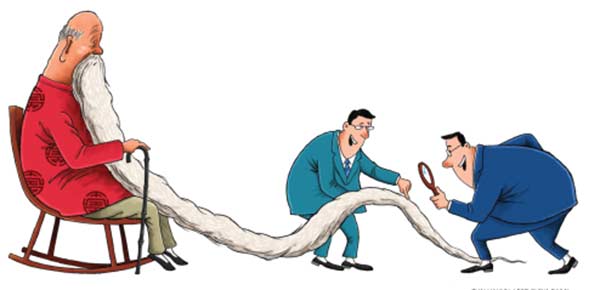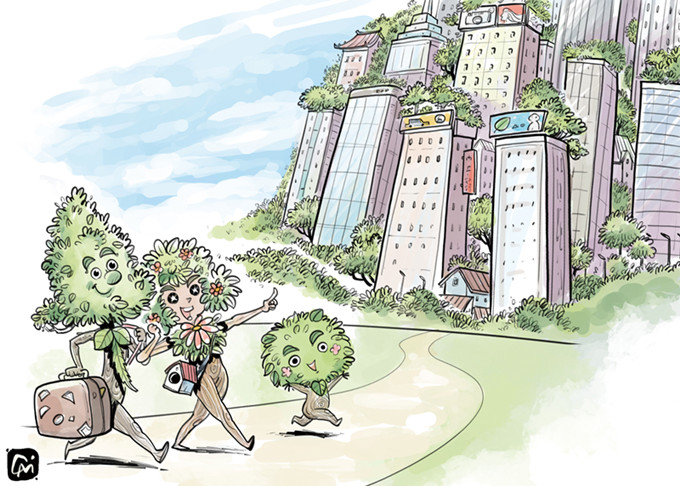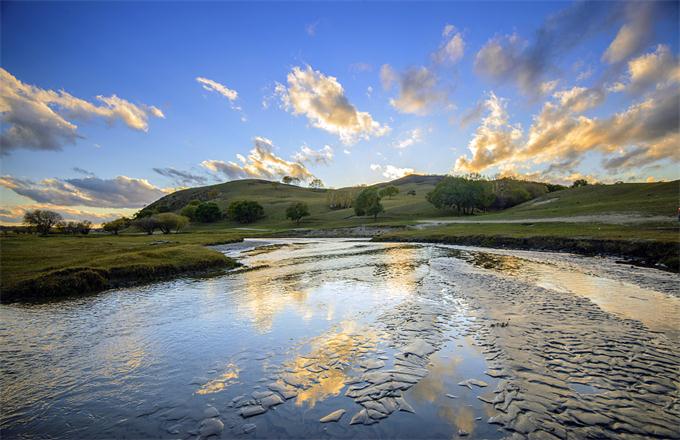Pursue meaningful life, not longevity
 |
Yet people tend to forget these simple lessons in today's commercial world ruled by a monster called mindless craze, which if unleashed will lead to not only extravagance and waste, but also all sorts of social and commercial oddities.
Bama county in Guangxi Zhuang autonomous region is a case in point. Tens of thousands of people, many of them suffering from cancer, or chronic diseases such as diabetes or hypertension, visit Bama, the "longevity county", in the hope of curing their diseases, as they believe the fresh air, and local food and water in Bama act like miracle medicines and are the reasons for local residents' unusual longevity.
Many contests have been organized-perhaps inspired by the Japanese-to elect the "hometown of longevity" in China. One can understand that such organizers want to use "scientific" methods to reach a conclusion on the "law of longevity", so as to benefit more people. I've been invited as a member of the jury to judge a couple of such contests. But because assuming there is a law of longevity would be sheer folly, I have politely refused the invitations.
Regretfully, many people see Bama as a "longevity county". The over-commercialization of the county has let loose the monster that is mindless craze. As a result, some simple natural resources from Bama have become "sacred articles" carrying the magic code of longevity.
Some businesspeople, realizing that people's craze can be easily translated into profits, have turned Bama into a lucrative business. There are guides to take the "devout pilgrims" to Bama to squander their money in the hope that every penny they spend will add to their life. History shows that people have lost all their riches-and some kings their kingdoms-in the quest for longevity, if not immortality.
Even in the classic Journey to West, there are monsters who want just a bite of the monk's flesh in the belief that it will make them immortal.
The pursuit of longevity is not new to Chinese culture. More than 400 million people-or 25 percent of the total population-in China will be 60 or above in less than 20 years. Perhaps occasional reports on "scientific" research suggesting people's lifespan could increase to 100 years have reignited the pursuit of longevity among Chinese. And Bama has become the means to the success of that pursuit.
Different centenarians have different reasons for their longevity. Some live in relatively clean environment, others have beaten the odds even in polluted cities. Some are vegetarians, others swear by meat and fish. Some follow a healthy lifestyle, while others are heavy smokers and drinkers.
Most of the centenarians in Bama have led a frugal life because it used to be a poor county untouched by modern development till a few years ago. No one knows the secret of longevity of the centenarians in Bama or those in other places. But we know that a long life could be tedious, meaningless and of no use to society-and a short one could be highly meaningful and beneficial to a society, a country, even the world.
A person's pursuit should be to lead a meaningful life.
The author is a columnist for Southern Metropolis Daily. The article first appeared in the newspaper on Wednesday.



















